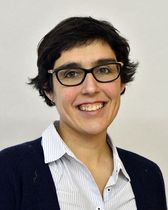A Tropical Disease in Switzerland: Call for Coordinated Action on Chagas Disease
20.12.2024
The Swiss Tropical and Public Health Institute (Swiss TPH), in collaboration with the World Health Organization and other partners conducted a comprehensive review of Chagas disease in Switzerland. Although typically found in Latin America, Chagas disease affects between 2,000 and 4,000 people in Switzerland. The review, published yesterday in the Swiss Medical Weekly, underscores the need for improved screening and healthcare strategies to eliminate Chagas disease in Switzerland.

Integrating Chagas screening into antenatal and paediatric care for early detection and prevention of mother-to-child transmission during pregnancy and childbirth is an important priority. (Photo: AdobeStock/Swiss TPH)
Chagas disease, caused by the parasite Trypanosoma cruzi, affects about 7 to 8 million people worldwide, mainly in Latin America. The parasite can be transmitted by triatomine bugs, via food, blood transfusions and organ donations, as well as from mother to child during pregnancy and birth. Chagas disease has two phases: In the acute phase in the first 2 months, symptoms are mild or absent, though some may have fever, headache or swelling at the bite site. Decades later, in the chronic phase, up to a third of infected individuals develop cardiovascular, digestive and/or neurological problems. Advanced cases can lead to heart complications such as arrhythmias and sudden death. Chagas disease is categorized as a neglected tropical disease (NTD) by the World Health Organization (WHO).
2,000 to 4,000 people in Switzerland affected
A review published yesterday in the Swiss Medical Weekly now sheds light on the prevalence, challenges and management of Chagas disease. The study found that an estimated 2,000 to 4,000 people are affected by this tropical disease. While most of the cases stem from migration, the study also shows that Chagas disease can be transmitted in Switzerland through mother-child transmission during pregnancy and childbirth. The vector – the triatomine bug – is not present in Europe.
“A major problem of Chagas disease is that it is often underdiagnosed, particularly in non-endemic regions,” said Pablo Martinez de Salazar, Senior Scientific Collaborator at Swiss TPH, and last author of the study. “Indeed, many cases remain undiagnosed or undetected for years, potentially resulting in severe cardiac or digestive complications if untreated.” Factors such as limited awareness among healthcare professionals, absence of nationwide screening programmes and barriers to healthcare access – especially for undocumented migrants –, contribute to this underdiagnosis.
Establishment of the Swiss Chagas Network
To address these issues, the study team established the Swiss Chagas Network to eliminate Chagas disease as a public health problem through coordinated measures. The network aims to interrupt transmission and to provide adequate clinical management to people living with Chagas disease in Switzerland.
Key priorities include integrating screening into prenatal and paediatric care for early detection and preventing mother-to-child transmission during pregnancy and childbirth. In line with international guidelines, the Swiss Society for Gynaecology and Obstetrics recently issued an expert letter on Screening, prevention and treatment of congenital Chagas disease .
“Systematic screening in Latin American migrants, with a focus on women of reproductive age, pregnant women and children, will be critical,” said Mar Velarde, Scientific Collaborator at Swiss TPH and co-author of the paper. “If appropriate measures are put in place, Switzerland will be well positioned to achieve the targets of the WHO road map for neglected tropical diseases by 2030 and could become a blueprint for other countries.” The road map sets out global targets to prevent, control, eliminate and eradicate different NTDs by 2030.
About the study
The study was led by Swiss TPH in collaboration with WHO, Unisanté, the University of Lausanne, the School of Health Sciences (HESAV), the University of Applied Sciences and Arts Western Switzerland (HES-SO), the University of Zurich, the University of Basel, the Geneva University Hospital, and the University of Geneva. The coordination of the study was supported by the R. Geigy Foundation.
Swiss TPH expertise in Chagas disease
Swiss TPH has a long tradition of work pertaining to neglected tropical diseases, from basic research to training, diagnosis, treatment and elimination efforts. With regards to Chagas disease, Swiss TPH is involved in drug discovery, drug development, epidemiology, diagnosis, control and elimination.
Contact

Pablo Martinez de Salazar
Dr. med
Scientific Project Leader
+41612848718
pablo.martinezdesalazar@swisstph.ch

Mar Velarde
Scientific Collaborator I
+41612848766
mar.velarde@swisstph.ch
Stay connected
Subscribe to our newsletter and get all the latest research news, project updates, course and event listings from Swiss TPH.